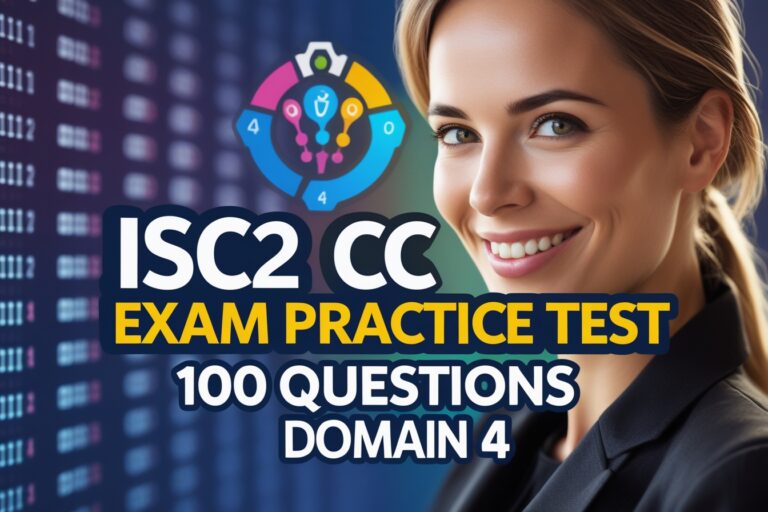1) We can overload which of the following C++ operators.
A) Arithmetic operator (+, -, *, /)
B) Class Member Access Operators (., .*)
C) Size operator(sizeof)
D) Conditional operator(?:)
2) ……………… must be either non-static member function or friend functions.
A) member functions
B) Operator functions
C) non-static functions
D) friend functions
3) Operator overloading is also called …………….. polymorphism.
A) run time
B) initial time
C) compile time
D) completion time
4) We can overload almost all the C++ operators except the following.
i) Class member operator (.,.*) ii) Assignment operator (=)
iii) Scope resolution operator (::) iv) Conditional operator (?:)
A) i, ii and iii only
B) ii, iii and iv only
C) i, iii and iv only
D) All i, ii, iii and iv
5) Which of the following is the correct order involves in the process of operator overloading.
i) Define the operator function to implement the required operations.
ii) Create a class that defines the data type that is to be used in the overloading operation.
iii) Declare the operator function op() in the public part of the class.
A) 1-i, 2-ii, 3-iii
B) 1-ii, 2-iii, 3-i
C) 1-ii, 2-i, 2-iii
D) 1-iii, 2-ii, 3-i
6) State whether the following statements are True or False for overloading operators.
i) Only existing operators can be overloaded.
ii) We can change the basic meaning of an operator
A) True, True
B) True, False
C) False, True
D) False, False
7) We cannot use friend functions to overload which of the following operators.
i) membership operator(.) ii) Assignment operator(=)
iii) class member access operator(_>) iv) conditional operator(?:)
A) i and ii only
B) ii and iii only
C) iii and iv only
D) i and iv only
8) …………… overloaded by means of a member function, take no explicit arguments and return no explicit values.
A) Unary operators
B) Binary operators
C) Arithmetic operators
D) Function operator
9) ……………. overloaded through a member function take one explicit argument and those which are overloaded through a friend function take two explicit arguments.
A) Unary operators
B) Binary operators
C) Arithmetic operators
D) Function operator
10) When using ………………., overloaded through a member function, the left-hand operand must be an object of the relevant class.
A) Unary operators
B) Binary operators
C) Arithmetic operators
D) Function operator
11) Operator overloading is done with the help of a special function called ……………, which describes the special task of an operator.
A) overloading function
B) special task function
C) detail function
D) operator function
12) The compiler does not support automatic type conversions for the ………….. data type.
A) basic
B) user-defined
C) class
D) automatic
13) The casting operator function should satisfy which of the following conditions.
i) It must be a class member ii) It must not specify the return type
iii) It must not have any arguments
A) i and ii only
B) ii and iii only
C) i, iii only
D) All i, ii and iii
14) The conversion from a class to any other type or any other class should make use of a ………….. in the source class.
A) casting operator
B) constructor
C) not applicable
D) operator function
15) To perform the conversion from any other data type or class to a class type, a ………….. should be used in the destination class.
A) casting operator
B) constructor
C) not applicable
D) operator function
16) The general form of an overloaded casting operator function usually referred to as a ……………..
A) casting function
B) operator function
C) conversion function
D) overloaded function
17) Operator overloading provides a flexible option for the creation of new …………….. for most of the C++ operations.
A) class
B) function
C) object
D) definitions
18) In the case of …………….. function, arguments may be passed either by value or by reference.
A) private
B) friend
C) member
D) public
Answers
1) A) Arithmetic operator (+, -, *, /)
2) B) Operator functions
3) C) compile time
4) C) i, iii and iv only
5) B) 1-ii, 2-iii, 3-i
6) B) True, False
7) B) ii and iii only
8) A) Unary operators
9) B) Binary operators
10) B) Binary operators
11) D) operator function
12) B) user-defined
13) D) All i, ii and iii
14) A) casting operator
15) B) constructor
16) C) conversion function
17) D) definitions
18) B) friend
Read Next: Top 20 MCQ Questions On Inheritance In C++
Read More: C and C++ MCQ Questions










1 Comment
thanks .
please guide me to become a python developer
please sir SHUSEEL BARAL SIR